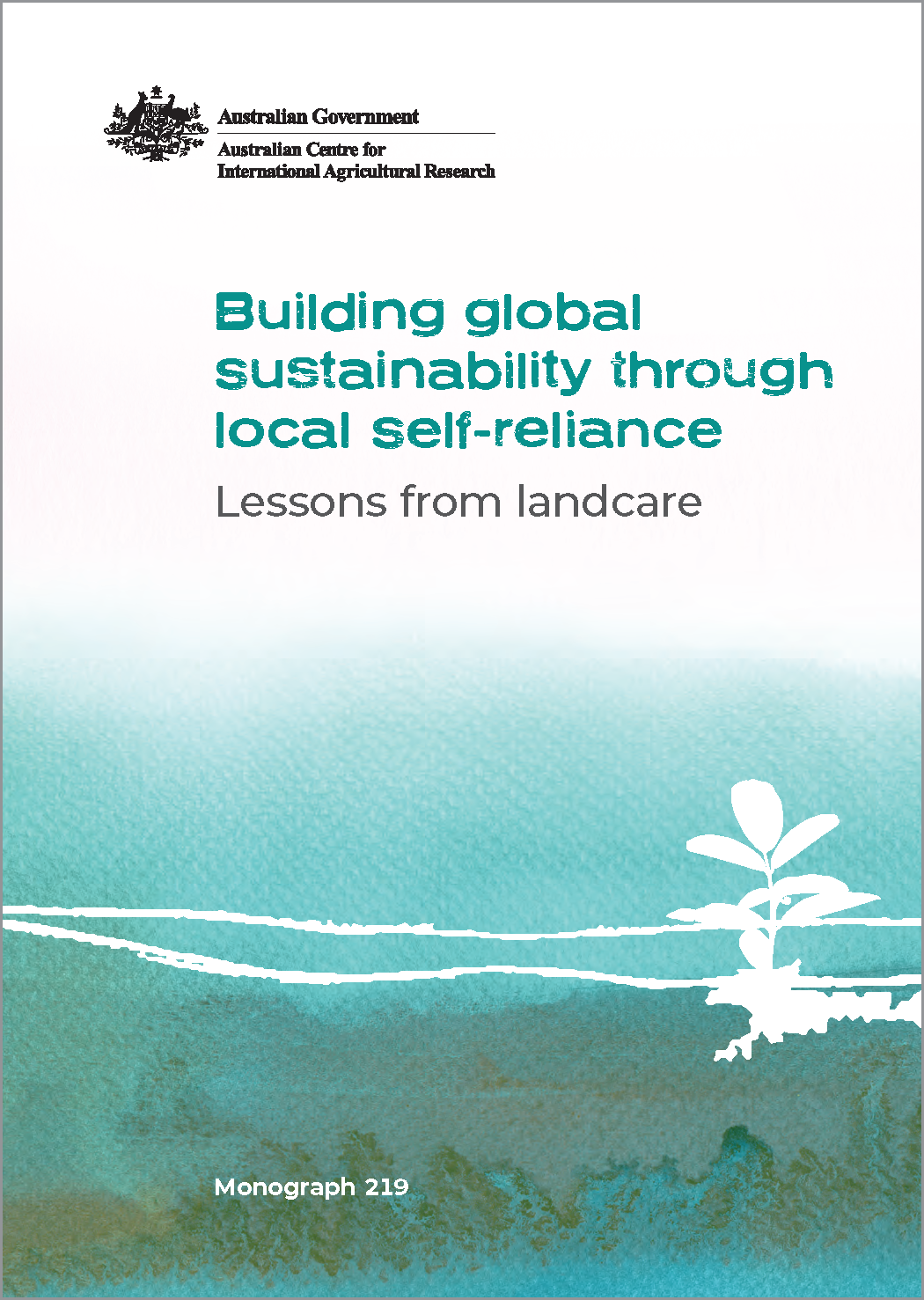- HomeHome
-
About ACIAR
- Our work
- Our people
-
Corporate information
- ACIAR Audit Committee
- Commission for International Agricultural Research
- Policy Advisory Council
- Agency reviews
- Executive remuneration disclosure
- Freedom of information (FOI)
- Gifts and benefits register
- Information publication scheme
- List of new agency files
- Contracts
- Legal services expenditure
- Privacy impact assessment register
- Commonwealth Child Safe Framework
- Benefits to Australia
- Careers
- 40 years of ACIAR
-
What we do
- Programs
- Cross-cutting areas
- Resources
- Where we work
-
Funding
- Research projects
- Fellowships
-
Scholarships
- John Allwright FellowshipScholarships to study in Australia for ACIAR partner country scientists to have Australian postgraduate qualifications
- ACIAR Pacific Agriculture Scholarships and Support and Climate Resilience Program
- Alumni Research Support Facility
- Publications
- News and Outreach
Image

Monograph
Building global sustainability through local self-reliance: Lessons from landcare
Date released
18 August 2022
ISBN
978-1-922787-24-8
Publication Code
MN219
Overview
In Australia, the empowerment of neighbourhood groups through landcare reflected a grassroots revolution in/publication/MN219-lessons-landcare environmental management and agricultural extension. Landcare evolved into a strong policy framework to support community groups to improve the sustainability of Australian landscapes and food production systems. By the end of the 1990s, farming families and other rural and coastal landholders saw themselves as active agents in the stewardship of their district, environment and community. The social benefits of landcare were evident.
These concepts have slowly infused their way into regional and rural landscapes in more than a dozen countries across the globe, delivering economic, social and environmental benefits to participating communities.
This book seeks to recognise and celebrate the potential application of the subsidiarity concept to deal with many complex contemporary challenges. It uses landcare to explore how this principle can be usefully applied to tackle multiple global problems, from climate change and public health improvement to post-disaster recovery and resilience building.
The distinctive Australian expertise of landcare has informed several ACIAR projects over the last 30 years, and many others have emerged across more than 20 countries. ACIAR is proud to partner with Global Landcare to publish this book, in which researchers and practitioners from 11 countries share their expertise and experience of landcare around the world.


